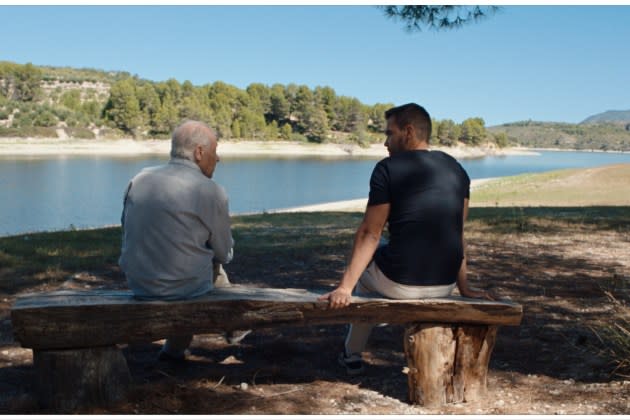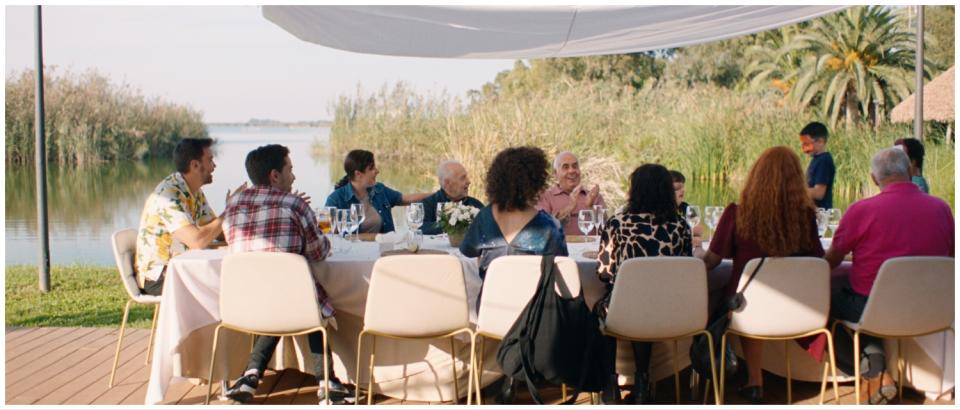Adrián Silvestre Uses Filmmaking as a Form of Reacquaintance in Personal Documentary ‘May Your Will Be Done’

A few years ago, Spanish director Adrián Silvestre was approached to make a film about euthanasia and the right to die with dignity. What he didn’t expect was where the more traditional research process would give way to a personal discovery: his own father, Ricardo, became a documentary subject. After 23 years of no contact at all, their meeting became the kernel of “May Your Will Be Done.”
The film has its world premiere in the Newcomers Competition of the Thessaloniki Documentary Festival, where Silvestre previously won the Special Jury Prize for his feature “Sediments” in 2021. “May Your Will Be Done” is produced by the Barcelona-based Nanouk Films, the creative documentary champion behind Locarno winner “Dead Slow Ahead,” in co-production with Producciones del Barrio and Atresmedia Cine.
More from Variety
Speaking to Variety ahead of the premiere, the director said he found himself in a position that was both surprising and challenging at the same time. When conversations with his father began to gravitate around the topic of euthanasia, he realized he had the most appropriate story before him, and, in his words, “no one better than me could tell it.” But such a personal journey, stretched between unreconciled pasts and futures cut short, is not easily translated into a film. To that end, Silvestre’s penchant for blending reality with fiction proved itself useful. For a director who usually conducts workshops with future documentary subjects or natural actors, the prospect of filming his family—his cousin, brother, and mother—seemed uncomplicated.
However, his father was a different matter: What we see in the film is their first ever meeting after more than two decades of silence. Reflecting on the process of reconnecting with an estranged parent in front of the camera, Silvestre remarked that the very beginning was already a turning point for both of them. The act of filming that first reunion, made him realize that “Ricardo still was the person whom I barely remembered. Just as everyone changes over time, I also had to re-acquaint myself with my own father.”

As a result, filmmaking itself became a tool for reacquaintance. Both director and participant, Silvestre was not only capturing personal transformations, but also experiencing them. As a result, turning the camera on himself in a film about his own father posed a new challenge for him. It meant relinquishing the usual amount of control on set and in practical terms, figuring out how to be present while also peeking at the monitor placed on his lap. He admits that “rather than thinking about how daring the matter of acting would become for me, I was mainly worried about such specific things.”
Hybridity is what helped him mediate his dual role in the process as it is a concept that makes one think “beyond established structures.” Between each documentary project and the next, Silvestre has so far made a fiction feature, the latest of which, “My Emptiness and I” was part of IFFR’s Big Screen Competition last year. Silvestre values hybridity both as a spectator and a filmmaker, he says, and admits to a tendency to question the boundaries between reality and fiction in every project, whether documentary or not. “May Your Will Be Done” is billed as a documentary, but according to the director “it borrows fictional techniques, aesthetics and narratives.”
Treating the project in hybrid terms came in handy during the preparation process, where Silvestre, together with his producers, mapped out a potential narrative and events that were likely to happen, effectively “approaching the film as a fictional project in terms of scenes, characters and locations.” But when it came to the subjects and the reality of the shoot, everything remained open. Toward his own family, the director says he “tried to make them feel relaxed, express their ideas freely, enjoy what they were doing, and focus just on the present rather than on the ins and outs of the complex production process.”
To aid the process, cinematographer Lara Vilanova, “had to become my eyes,” as Silvestre says. Her role was crucial and relied on “a relationship of trust and rapport” as they had to establish in advance the styling, framing and camera movements for every scene. “We also created a personal system of signs to transmit guidelines without the subjects realizing it,” shared the director, and added that some more complex scenes needed two cinematographers to capture the unfolding complexity between multiple characters. The unpredictability of it all, Silvestre hopes, has left its mark on the film, knowing that he “had to travel an uncertain path to make it.”
Thessaloniki Documentary Festival runs from March 7-17.
Best of Variety
Sign up for Variety’s Newsletter. For the latest news, follow us on Facebook, Twitter, and Instagram.


